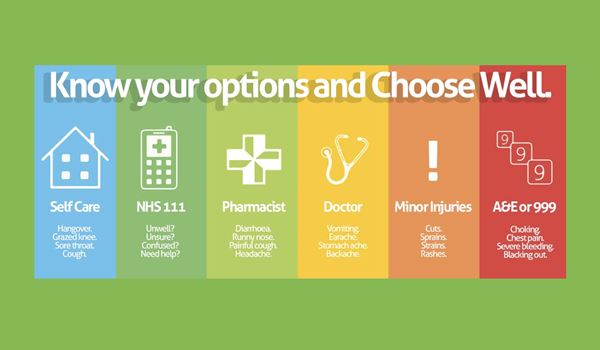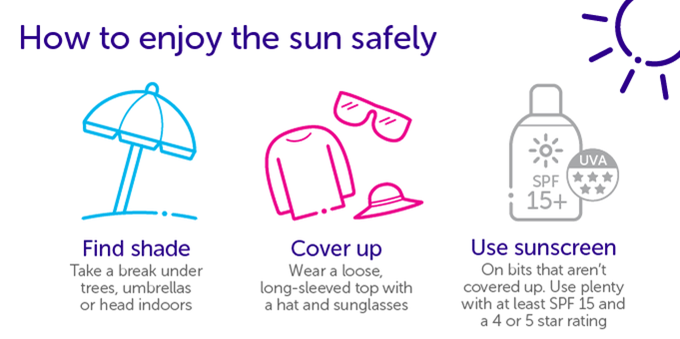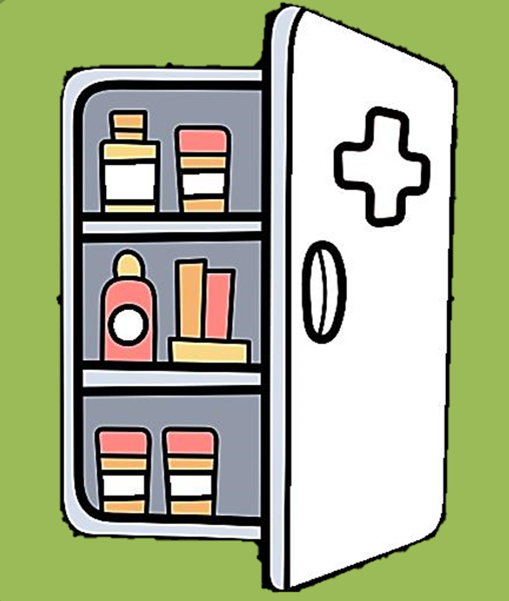Minor Ilness

Who Should I See?
Not sure if your current issue requires an appointment with a GP? Why not take a look at the following services that can help identify the best health care professional to see:
- NHS Website can offer advice and guidance on your current issue and which healthcare preofessional you should see.
Remember if you are experiencing a high temperature, a new, continuous cough or a loss or change to your sense of smell or taste to stay home.

Summer Health
Most of us welcome hot weather, but when it's too hot for too long, there are health risks. If hot weather hits this summer, make sure it does not harm you or anyone you know. Below are links to common summer ailments to help you spot the signs, prevent, tips to manage at home and when to contact a healthcare professional.
Medicine Cabinet
You should make sure that your medicine cabinet is always stocked. This will allow you to be prepared for common health problems without ever having to leave the house. The Royal Pharmaceutical Society recommends the following items but remember to always seek advice from a pharmacist if you are unsure or are treating someone under the age of 12:
- Pain relief - highly effective at relieveing minor aches and pains as well as helping with minor illnesses.
- Antihistamines - useful for allergies and insect bites and most commonly hayfever.
- Oral rehydration salts - useful to replenish water and minerals lost following diarrhoea and a high temperature.
- Sunscreen - ensure that it has UVA protection.
- Indigestion treatment - useful for treating heartburn.
- Anti-diarrhoea medication - useful to treat food poisioning and other viral stomach bugs at home.
- First aid kit - maintain stock of antiseptics, plasters, bandages, sterile dressings (for larger injuries) and a working thermometer.

Winter Health
Cold weather can make some health problems worse and even lead to serious complications, especially if you are 65 or older, or if you have a long-term health condition.
Five things we recommend you do
- Make sure you get your flu jab.
- Keep your home at 18°C (65°F) or higher if you can.
- Take advantage of financial schemes and discounts to help you pay for heating.
- Visit your local pharmacist as soon as you start to feel unwell with the symptoms of a respiratory winter illness.
- Look out for other people who may need a bit of extra help over the winter.
You can also find further information by clicking the links below.
- Common Cold - You can often treat a cold without seeing a GP. You should begin to feel better in about a week or 2.
- Flu - You can often treat the flu without seeing a GP and should begin to feel better in about a week.
- Keeping warm - Information for over 65's, low income families, people living with a disability.
- NHS Winter Advice - General advice for keeping well in the cold weather.
Page created: 13 August 2020